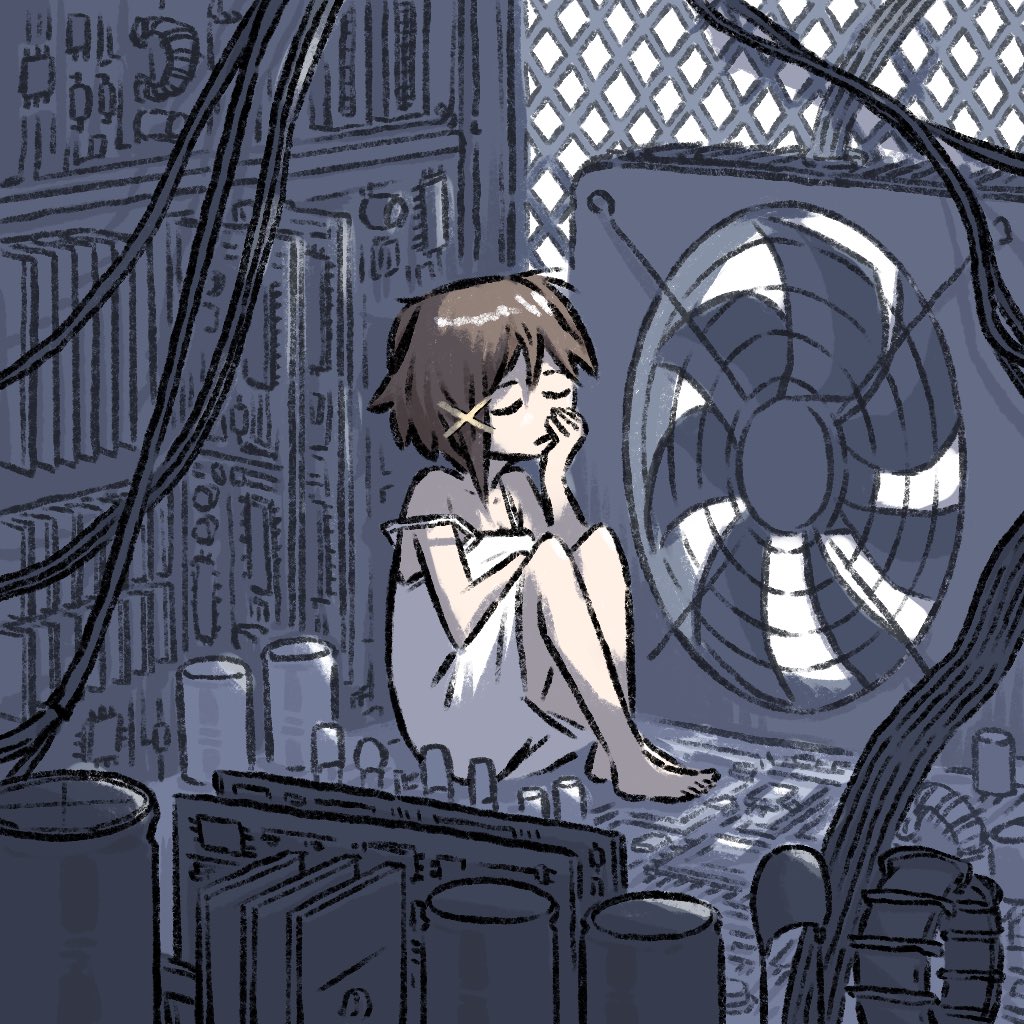Do you actually own anything digital?::From ebooks, to videos and software, the answer is increasingly no
If it’s on my Jellyfin server, I own it as much it’s possible to own anything.
If they wanted me to pay for it, maybe they shouldn’t have dicked me around, watering down my subscribed services while simultaneously jacking up the price.
If you’re on Lemmy, you almost certainly understand the problem and know how to acturally own digital stuff.
The problem is all the normies who can’t even see the problem. We need everyone to be protected by law and it all to be citizen oriented. As the moment, it’s all stacked in favour of exploitive multinational companies. Maybe ever was it so, but we need to fight that.
We treat it as a tech problem, something to work round, but it’s a political problem and we need to solve it politically.
This.
Also, we all here are aware of the problem, to the point where such posts are nothing but circlejerk.
The article might come as eye-opener to some, but certainly not here. Time for solutions. And they are political.
Drives me mad the main stream seam unaware/ignoring that it’s about anything free piracy. You hear next to nothing about the problem of DRM, digital ownership, digital freedom or even proper competition in proper markets. There is sometimes mentions of Right To Repair, but they never follow the thread. Or talk about how the internet runs on FOSS. A FOSS system like Debian is a wonder, that still, after 15y of use, floors me when I think about it. A utopian vision of humans can do.
I get you
Drives me even more insane when they actively complain about losing access to something, or not having it available offline, and do nothing about it
Like, here’s the super simple solution, just take it!
But they won’t sacrifice a tiny bit of their habit to break free. They’ll keep on whining about the world and not doing anything, even when they are directed to it with the most simple, grandma-style guidance.
They can’t really perceive what is being done to them. They can notice something, but can’t quite put it all together.
Voices like EFF, OpenRightsGroup, FSC, etc, need to be heard and made understandable by normal people, news and government.
This is why I don’t want Lemmy to become huge. Keep the idiots out.
Seriously, sometimes I wish we could get all the shitty execs and politicians alone in a room with all of us and just insult them for their shitty behavior, like the Chevy Chase comedy central roast.
I mean who wouldn’t want to see the expression on the head of Nestle’s face when he’s told his mother should have swallowed?
They know full well we hate them, that wouldn’t help, and would vent the anger we need to make an actual sensible change.
Aye, I be ownin’ it all, mateys!
Aye aye, only the finest and cleanest wares on my drives
The top Linux isos
Like Doctorow said, if you cant own it you can’t steal it.
Possession is 9/10ths of the law, so I 90% own a whole lot of stuff I pirated while I don’t own most things Ive paid money for… Great system guys
We still own all our CDs, DVDs and Blu-rays, so them as long as the players still exist.
Only if the DRM is broken. DRM can make the player stop working sooner. It’s literally about making the media less playable.
GOG, buy music in mp3/flac format, not sure about video. I guess you can pay for subscription and just pirate stuff you like to keep real ownership.
No, and once I became aware of the fact realized that I was kinda screwed when it came to video games.
Every single video game I have purchased is on Steam, and considering its DRM and licence business model, I had multiple conversations with my friends who also had the same worry and wondered what would happen if Steam shut down one day. Valve did state that they’ll remove the DRM if the platform shut down, but there’s no way of knowing the future as million things can happen and for all we know, they might change their minds or not be in a position to remove the DRM once the time came.
Not “if”, but “when”.
But don’t worry, before that they will start dropping games to save on storage costs, so odds are you will no longer have access to anything you “own” way before they go under.TBH, the default steam DRM is trivial to remove yourself with steam emulators and stuff, and many indie games dont even use it. The real problem is 3rd party DRM like Denuvo, which Valve probably can’t remove even if they wanted to.
No.
If I can actually download it and it’s DRM-free, yes.
I really wish there was some form of individual copyright that could be sold for specific media. I buy a song on itunes - I own a limited license to listen to that song so long as iTunes may serve it. If I was smart enough to download it to my device, then I might hold onto it a few moments longer in spite of Apple losing the copyright and denying me the ability to listen again on devices without the download. Sucks for me right?
What if I could buy a limited copyright? One that is strictly tied to my individual person and that specific media I had purchased. That copyright is nontransferable, but it is platform agnostic. I could then use that legal copyright to view or listen to that media on a streaming or distribution platform of my choosing. I could listen to a song on Spotify, or Pandora, or Apple, or Google, and I only had to buy it once. Those platforms would not need to negotiate copyright access for media, only demonstrate the ability to serve that media and limit access to those with the copyright.
I would HAPPILY buy all of my media for a … 3rd time? 5th time? God I don’t even know how many times I have purchased some of my music. Vinyl, CD, iTunes, streaming services a plenty… a second CD or two from mixes. Yeesh. I’m fucking tired of it. I want to be able to feel as if I had some kind of longer lasting ability to access the media of which I have paid for.
deleted by creator
No, more like a way for copyright holders to generate and sell limited licenses. Nothing requires centralization here except some brief api for validating licenses.
Unironically, block chain. A legit use for NFTs
Not with DRM
Digital restriction management
Here’s the summary for the wikipedia article you mentioned in your comment:
Digital rights management (DRM) is the management of legal access to digital content. Various tools or technological protection measures (TPM) like access control technologies, can restrict the use of proprietary hardware and copyrighted works. DRM technologies govern the use, modification and distribution of copyrighted works (e.g. software, multimedia content) and of systems that enforce these policies within devices. DRM technologies include licensing agreements and encryption.Laws in many countries criminalize the circumvention of DRM, communication about such circumvention, and the creation and distribution of tools used for such circumvention. Such laws are part of the United States’ Digital Millennium Copyright Act (DMCA), and the European Union’s Information Society Directive – with the French DADVSI an example of a member state of the European Union implementing that directive.Many users argue that DRM technologies are necessary to protect intellectual property, just as physical locks prevent personal property from theft. For examples, they can help the copyright holders for maintaining artistic controls, and supporting licenses’ modalities such as rentals. Industrial users (i.e. industries) have expanded the use of DRM technologies to various hardware products, such as Keurig’s coffeemakers, Philips’ light bulbs, mobile device power chargers, and John Deere’s tractors. For instance, tractor companies try to prevent farmers from making repairs via DRM.DRM is controversial. There is an absence of evidence about the DRM capability in preventing copyright infringement, some complaints by legitimate customers for caused inconveniences, and a suspicion of stifling innovation and competition. Furthermore, works can become permanently inaccessible if the DRM scheme changes or if a required service is discontinued. DRM technologies have been criticized for restricting individuals from copying or using the content legally, such as by fair use or by making backup copies. DRM is in common use by the entertainment industry (e.g., audio and video publishers). Many online stores such as OverDrive, use DRM technologies, as do cable and satellite service operators. Apple removed DRM technology from iTunes around 2009. Typical DRM also prevents lending materials out through a library, or accessing works in the public domain.
I think I own my fingers, so them.
Those who down voted you are either idiots, or hate clever wordplay
or they just hate OP for still having their fingers
If you own a physical object and it has an internet connection than you don’t actually own it.
I guess I didn’t buy my phone or my laptop then?
You did, but you are the product
How am I the product when I bought it outright and installed Linux before ever booting it up?
Congratulations, then you aren’t. On another note, how does Linux on a phone look like? I thought Ubuntu touch was still pretty far from daily-drive capability.
Ah I was just referring to my laptop there. I do still use Android, but with LineageOS instead of my device’s stock image.
You bought it but you don’t own it. The companies that made them can always decide to reach through the internet and rearrange them better to their liking
what are they gonna do? shut down my CPU or something using the internet?
I don’t think I ever heard of it happening to a computer, but it did happen to printers: https://www.thisismoney.co.uk/money/news/article-10755577/Printers-remotely-disabled-customer-cancels-ink-subscription.html
Custom Android ROM? Linux? That’s just not true. Especially considering entirely FOSS devices i.e. System76.
deleted by creator
It all depends on the licence. Even if you buy something on physical media you may not technically own it. If something has a FOSS licence MIT, BSD, GPL, etc Then yes you do own your copy and no one can change that.
I may only have a license to view the contents of a dvd, but at least I’ll always be able to view it as long as it’s in my possession and I have a dvd player.
Content you can only access remotely via someone else systems (or requiring remote authorization via there systems) can be taken away at anytime regardless of the terms of your license, even supposedly “indefinite/permanent/lifetime” licences.
Both of these items use the same term ‘purchase’. This term used to refer to the first situation only, but now it covers both.
















